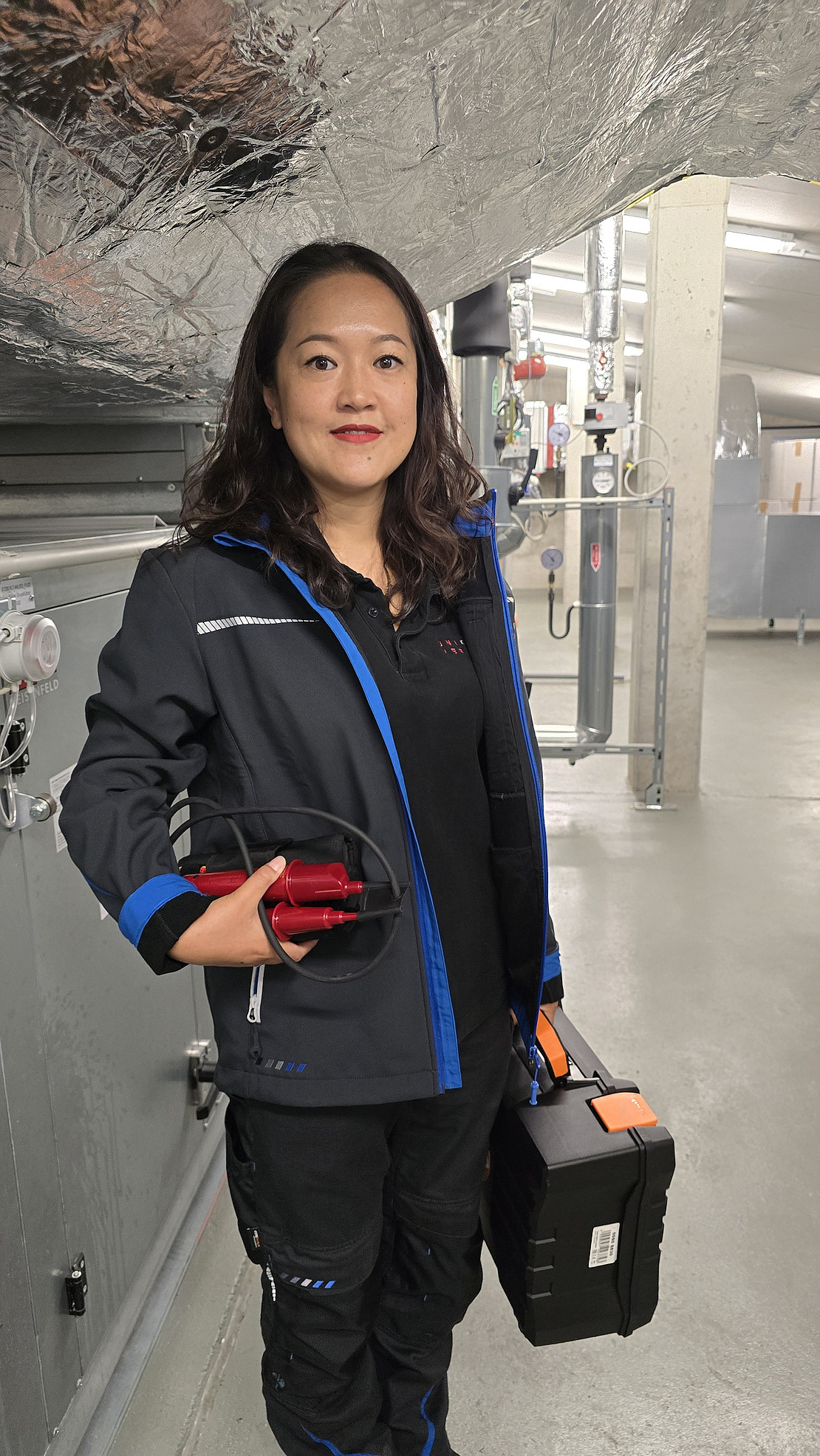Training as an electronics technician for industrial engineering
The content on this page was translated automatically.
 Image: Electrical training workshop
Image: Electrical training workshopWhat does an electronics technician for industrial engineering do?
At the time you start training, you should have an intermediate school leaving certificate (Realschulabschluss). The grades in mathematics, physics and English should be at least "satisfactory" or better on your school leaving certificate. In addition, an interest in manual work, IT and electronics, a technical understanding and logical thinking are important.
There are fixed working hours from 7:45 a.m. to 4:15 p.m. on weekdays.
Training as an electronics technician for industrial engineering has a dual structure. It lasts three and a half years. The trainees work in the electrical and electronics workshop of the electrical engineering/computer science department, where they gain practical experience right from the start.
Theory is taught at the vocational school on certain days of the week. The vocational school is the Oskar von Miller School in Kassel.
The vocational school is an important part of the training, as it provides you with the theoretical background knowledge for your professional practice. You will learn about electrotechnical systems, analyze control systems and become familiar with the devices and assemblies in plants. After all, you will have to be able to assemble these later and know their functions for programming controls.
Important subjects in the vocational school are:
- Operating technology
- Installation and power engineering
- Control technology
- Systems and equipment engineering
A monthly training allowance is paid in accordance with Section 8 (1) of the Collective Agreement for Trainees of the State of Hesse (TVA-H BBiG). This currently amounts to
- 1,126.85 EUR in the 1st year of training
- 1,181.43 EUR in the 2nd year of training
- 1,231.51 EUR in the 3rd year of training
- 1,300.97 EUR in the 4th year of training
Technical specialist: Of course, you should be technically proficient. After all, as an electronics technician for operating technology, you are responsible for all electronic work.
Patient: In addition to technical understanding, patience also plays an important role.
Logician: It is an advantage if you can think logically. This makes it easier for you to assemble or connect electrical equipment, for example.
Tell us about your training!
I plan and set up electrical installations and lay cables. I also set up electrical installations and systems and test or repair them. I plan and convert circuit diagrams into electrical controls. It is also important that I learn and apply work safety and protective measures when dealing with electrical installations.
Why did you choose an apprenticeship and this one in particular?
The education system in Germany is very much based on practical learning. In the apprenticeship, you learn practice and theory at the same time. I think that's very good, because afterwards you gain enough experience to survive in the working world. I've always enjoyed technology. I like to repair electrical appliances at home. It makes me very happy when I see that the devices are working again. For this reason, I wanted to know more about electrical engineering.
What else would you like to pass on to others?
Hi guys, electronics is very interesting. We have nice and experienced professionals here. If you are interested in technology, just come to us.
Ask yourself beforehand if ...
- you enjoy theoretical work.
- you already liked math and physics at school.
- you are responsible.
Or whether you ...
- get impatient as soon as technology doesn't work.
- you are not so good at practical work.
- you get a sinking feeling in your stomach when dealing with high voltage current.
Go link of this page: https://www.uni-kassel.de/go/ausbildung-elektroniker
